Delusions versus Hallucinations
Impaired thinking can be experienced by anyone. There are various kinds of thought disorders that can occur in humans, including delusions and hallucinations. These thought disorders may seem similar, but apparently they have different meanings. Let’s find out what makes delusions and hallucinations different from the review below.
What Is The Difference Between Hallucinations And Delusions?
Both delusions and hallucinations occur when the brain senses or processes something that is not really happening. Both are often misinterpreted as the same but both have fundamental differences. One is a serious mental disorder, while the other is a symptom and can be caused by various things.
What are delusions and hallucinations?
Delusion is a type of mental disorder in which the sufferer cannot distinguish between reality and imagination, so he/she believes and behaves according to what he/she thinks. While hallucinations are symptoms that are marked by the sensation that is processed by the brain and can affect one’s senses. Based on this understanding, both delusions and hallucinations are conditions where a person experiences things that are not real.
Delusion is a mental disorder that causes a person to believe that something is not actually happening while hallucinations are a symptom when one’s senses experience things that are not real.
Causes of delusions
Delusions are a mental illness so there are risk factors that can affect a person’s condition:
- Genetic – as with schizophrenia, delusional disorders are more likely to occur to you if a family member experiences the same thing. This is very likely passed from parent to child.
- Biological – delusional disorders may form if parts of the brain for thought processes (frontal lobes) and perception (parietal lobes) experience disorders such as brain tumor growth.
- Environmental or psychological – delusional disorders can also be triggered due to excessive stress risk behaviors such as over-consumption and narcotics abuse. A person who experiences loneliness and isolation due to hearing and visual impairment can also experience delusions.
Causes of hallucinations
Hallucinations symptoms can be triggered by several causes, including:
- Mental disorders – various mental disorders that cause a person cannot cause reality and imagination such as delusions can cause hallucinations. Hallucinations can also occur in patients with schizophrenia, dementia, and delirium.
- Drug abuse – this is a common cause of hallucinations. Someone can hear or see something that is not real if they are in control of alcohol, cocaine, and hallucinogenic drugs.
- Sleep deprivation – more likely to occur if a person experiences sleep deprivation or do not sleep for several days or longer periods.
- Health conditions – there are various health conditions that cause a person to experience hallucinations including:
- Currently undergoing treatment
- Diseases with terminal stages such as in cancer, AIDS, or kidney and liver failure.
- Experiencing Parkinson’s
- High fever
- Migraine
- Social isolation, especially in the elderly
- Hearing and visual impairment of the senses
- Epilepsy
What happens when someone experiences delusions?
In general, people with delusions can work and interact like normal people, but they will show changes in behavior such as anger, irritation, or sadness if an interaction has come in contact with something they believe. What a person experiences when experiencing delusions can vary depending on the type of delusion experienced, including:
- Erotomania – causes someone to believe if someone falls in love with the sufferer. This belief is also accompanied by obsession and stalking behavior towards someone who is in his delusional thoughts.
- Grandiose – this type of delusion is closely related to high self-esteem, causing the sufferer to believe that he is an important person, has talent, is influential, and has made important findings.
- Jealous delusion – a type of delusion that gives rise to confidence if a partner or partner behaves unfaithfully to him.
- Persecutory – is a delusion that causes the sufferer to believe that he or the people around him are being treated unfairly, or feel if someone will do something bad to him. The behavior of criticizing excessive law enforcement efforts is also found in people with this type of delusion.
- Somatic – a type of delusion that causes the sufferer to believe if he has a disability or has a medical problem.
- Mixed – is a type of delusion characterized by the presence of two or more symptoms of a mixed type of delusion.

What happens when someone experiences hallucinations?
When someone experiences hallucinations he will show changes in emotion or behavior in accordance with the sensations he experiences and this depends on the senses that are affected. Hallucinations include:
- Visual hallucinations – the types of hallucinations that cause the person experiencing it to see a person, object, or another object that is not actually there.
- Olfactory hallucinations – types of hallucinations that affect the sense of smell both in the form of odors and odors that are not pleasant to yourself, an object, or others.
- Gustatory hallucinations – types of hallucinations that affect the sense of taste so that a person feels a certain taste. This often happens when a person has epilepsy who feels a taste of the iron surface on their tongue.
- Auditory hallucinations – are the most common type where a person can hear sounds such as footsteps, repetitive speech, or beats.
- Tactile hallucinations – hallucinations that occur in the sense of touch so that people feel symptoms such as the presence of insects, the movement of internal organs, or someone’s hand touching their body.
The difference in how to handle delusions and hallucinations
Delusional disorders are treated with psychiatric therapies such as psychotherapy, cognitive behavioral therapy, and family therapy. The goal of psychiatric therapy in delusional sufferers is to reduce stress, help sufferers interact and bring the sufferer closer to his family and those closest to him. Drug therapy for people with delusions includes neuroleptic and antipsychotic drugs to suppress the dopamine and serotonin hormones in the brain and antidepressant drugs.
While people who experience hallucinations are treated with drugs that slow down the brain’s work, but the handling of hallucinations is accompanied by factors that cause it to reduce the severity of hallucinations. Psychiatric counseling is also needed so that someone who is experiencing hallucinations can better understand the conditions they are experiencing.
Can hallucinations and delusions occur simultaneously?
Although different, hallucinations and delusions can occur simultaneously in patients with certain psychological disorders. If they occur together, these two conditions generally indicate the following disorders:
1. Schizophrenia
Schizophrenia is a chronic mental disorder that affects the way patients think, feel emotions, and behave. Schizophrenics seem like individuals who have lost touch with real reality.
The symptoms of schizophrenia fall into three categories, as follows:
Positive symptoms, namely behavior that shows that sufferers have a different reality. For example hallucinations, delusions, unusual ways of thinking, and gestures out of control.
Negative symptoms, or behaviors that interfere with normal daily life. For example, a flat face, the absence of pleasure from doing activities, and difficulties when doing daily activities.
Cognitive symptoms, which are characterized by decreased ability to remember, understand information, make decisions, and focus attention.
2. Delusional disorders
People with delusional disorders can also experience hallucinations related to the type of delusions they experience. For example, someone who believes that he has body odor can hallucinate smelling odors from his body.
There is also a type of delusion called erotomania. This delusion makes the sufferer believe that someone he admires has fallen in love with him. Patients can hallucinate seeing or hearing the sound of the figure.
3. Brief psychotic disorders
Brief psychotic disorders are characterized by the appearance of psychotic behavior in the form of delusions, hallucinations, and confusion. The behavior appears suddenly and is only temporary, usually for one day to one month.
The cause of brief psychotic disorders is not known with certainty. However, severe stress or trauma due to the death of family members, criminal behavior, or natural disasters can trigger symptoms.
Check out this 70 seconds video to learn the difference between Delusion and Hallucination.
Bottom Line
Hallucinations and delusions are signs of serious psychological disorders that make sufferers live in different realities. Both can endanger the patient and those around him/her if left untreated.
Handling of hallucinations and delusions can be done with a combination of therapy and medication by a psychiatrist. If your family member experiences this condition, you can join him/her in consultation or even record the symptoms.
—————————————————————————————————————————————–
This post may contain affiliate links, which means I make a small commission off purchases, at no extra cost to you. Read my full disclosure here. Thank you for supporting the work I put on this site!
—————————————————————————————————————————————–
We Stress Free does not provide medical advice, diagnosis, or treatment. However, if you need someone to talk to and want to make friends, please feel free to reach me at ferra@westressfree.com. If you would like to REDUCE your STRESS and are interested to do an ONLINE THERAPY, you can do so here.

———————————————————————————————————-—————————-
Disclaimer: The information contained in this website is for educational and informational purposes only and is not intended as health or medical advice. Always consult a physician or other qualified health provider regarding any questions you may have about a medical condition or health objectives.
Thank you for reading today’s topic: Delusions versus Hallucinations


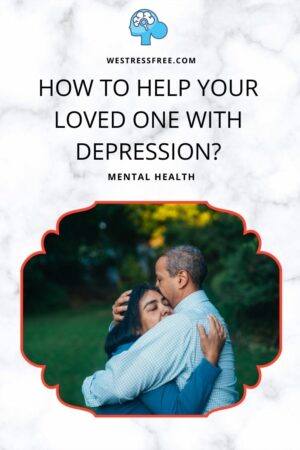

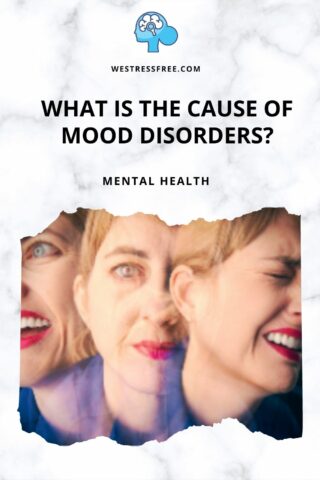
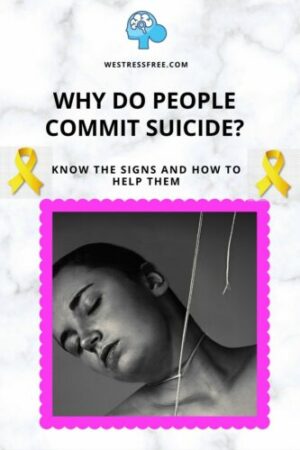


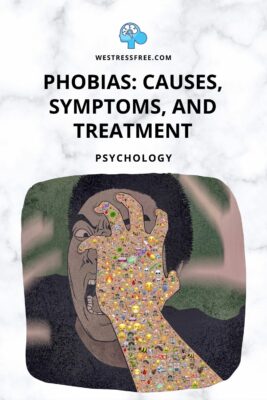

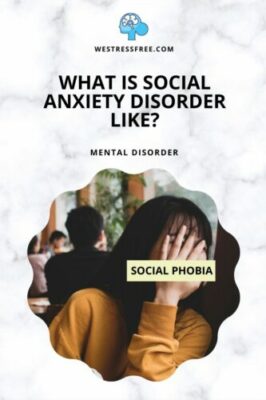
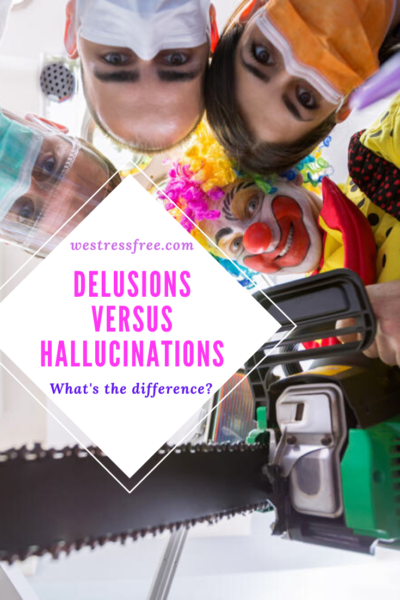
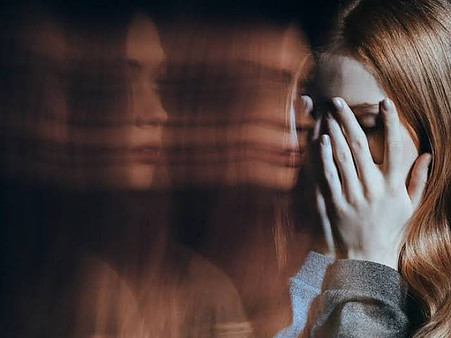
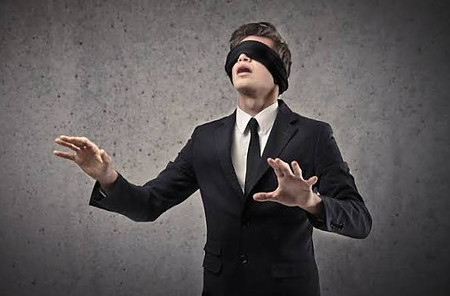

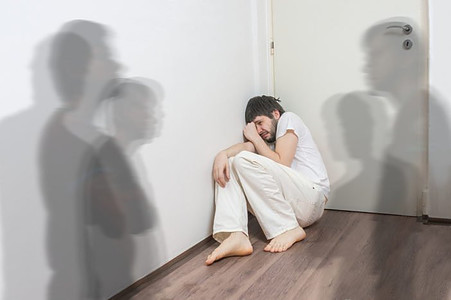
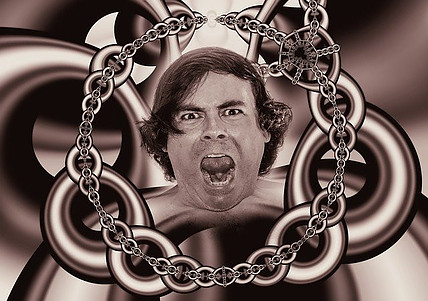


Hallucinations are Sense Energy Occurrences.
Delusions are Our Thoughts in Distortion <3
Hello Rique,
Thank you for visiting my site, reading the article, and leaving a kind comment.
Glad you found this article helpful. Hope it is helpful to others as well.
Stay safe, happy and healthy!
Ferra
Wow. I did not fully understand the difference between delusions and hallucinations until now. So many people use the terms interchangeably without proper context. You did an excellent job of breaking down the similarities and differences between the two, and I will definitely share this article with my friends and family. God bless you!
Hello C.N.,
Thank you for visiting my site, reading the article, and leaving a kind comment.
True. So many people use the terms of delusions and hallucinations interchangeably without knowing the proper context.
Glad you found this article helpful. Hope it is helpful to others as well.
Stay safe, happy and healthy!
Ferra
Thank you for the clear explanation of delusions and hallucinations. I think mental health is THE most important topic to discuss. I have a psychology degree and have already dealth with many people who suffer from mild to severe psychological issues. I also have close family members who have suffered from depression and it can be very debilitating.
It is sad that some people are alone and do not have the support they need to get the proper help. Understanding and recognizing and symptoms is key to hopefully asking for help.
Thank you for the great article!
Hi Cynthia,
I agree with you. There are still too many people who are not aware of many different kinds of mental illness. Some simply think it is not worth to talk about as long as they’re not affecting by it. Some are purely don’t know. That is why I created this website so I can help to raise awareness towards mental illness that actually can affect anyone.
I don’t have a psychology degree but I have a couple family members who suffer from PTSD and schizophrenia. So I understand how it feels to live with people with mental illness. I also read a lot of books to educate myself and I genuinely want to help others to cope with family members who suffer from any kind mental illness. They are too human beings who want to live a normal and happy life like us.
Thank you for your kind comment and sharing your view, Cynthia. I really appreciate it.
Stay safe, happy and healthy!
Ferra
Nice article previewed on delusions and hallucinations, from this article I guess I now understand what each term entails and how to come about… One obviously can’t avoid delusions but can avoid hallucinations, so its pretty sure we now know how to overcome that’s which one can’t stop….pretty nice article…
Hi Evans,
I am glad to hear that you found this article useful and help you understand more the difference between delusions and hallucinations.
Thank you for your kind comment. I really appreciate it!
Stay safe, happy and healthy!
Ferra
I have always thought that delusion and hallucinations are the same thing, but thanks to your post I now understand the difference.
Delusion is a mental disorder whila hallucinations is a symptoms of experiencing things that are not real. Although there is kind of a tin line between them. Is there any test carried out to tell the difference if one is delusional or hallucinating?
Thanks.
Hello Lizzy,
You’re right. There is a thin line between delusions and hallucinations that make people confused and sometimes use them interchangeably.
There are no lab specific test to diagnose delusional disorder, doctors might use diagnostic tests, such as imaging studies or blood tests, to rule out physical illness as the cause of the symptoms.
How to tell someone that is hallucinating? By paying attention to the signs such as seeing things that are not there, hearing voices or other sounds, experiencing body sensations like crawling feelings on the skin, or smelling odors that are not there.
Thank you for your kind comment. I really appreciate it!
Stay safe, happy and healthy!
Ferra
Well done fe. Delusion is a mental disorder that causes a person to believe something that is not really happening. Thanks dear for such a hard work and deep insight on this matter.
Hello Winda,
Thank you so much for your kind comment. I really appreciate it.
Stay safe, happy and healthy. Hope you brother will get better every single day in your care.
Love,
Ferra